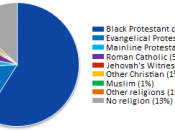1) Why is it valid or invalid to apply a heritability figure for human intelligence that was calculated for the North American white population to Asian-American populations? It is valid to apply a heritability figure for human intelligence. However, I believe that there are some restrictions to this application and the only way to apply this factor is to compare North American whites, Asian Americans, and African Americans of the same social and economical backgrounds. Human intelligence is largely related to environment factors. All genotypes, whether for intelligence, strength, or color of skin are in response to environmental conditions. It is possible to produce more intelligent individuals when they are exposed to a higher quality of education. Therefore individuals of different races may go to the same school and likewise have similar IQs.
When relating to intelligence there is hardly a difference. Outside of genetic mutations causing retardation, most genotypes for intelligence, no matter what the race, seem to be relatively similar in comparison with each other.
A gene?s phenotype responds in a fashion influenced by the environment, as is seen for the color of skin or in this case we are talking about intelligence. Sometimes there are no genetic differences, but phenotypically there are differences. In relating to intelligence, it is highly heritable, but not genetically determined. Basically genes and environment can interact in a complex way to determine the level of intelligence someone possesses. Heritability changes and depends on the environment. Therefore, it is very different in various populations. The only way to apply the factor of heritability of intelligence to North American whites, African Americans, and Asian Americans is if they come from the same background. The background would include economic status, location, and home environments.
The Bell Curve is the theory that black...


